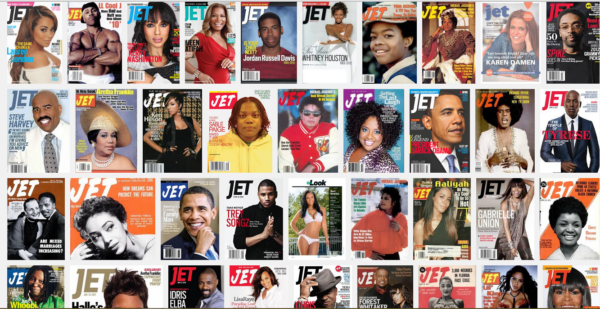7 Baffling Facts About the Decline of Black-Owned Media You Should Know About
There has been a decline in the number of Black journalists.
According an article released by MSR News, white males dominate the field of reporting whether it be in print, online, or in broadcast. In addition, a report generated by the Pew Research Center states that “the number of black journalists working at U.S. daily newspapers has dropped 40% since 1997.” This statistic represents a loss of almost 1,200 journalists.
Black-owned hip-hop culture has been under attack for the last 20 years.
In his book Can’t Stop Won’t Stop: A History of the Hip-Hop Generation, Jeff Chang explains that in the late 1990’s the social aspects that could have potentially fueled many development within the realm of hip hop were being “dumbed down” by way of peace agreements between gangs and “anti-gang [initiatives]” that, de facto, embodied the historical laws of Jim Crow. Hip hop was dying in the music industry just as it was dying in the streets. The commercialization and marketing of the art form turned hip hop artists into advertisers, as opposed to conscious entertainers, civil rights leaders, and political informers. In some case, “technology replaced engineers, and sometimes even DJs.” As a result, many Black people who once held power within the industry have been pushed out, while non-Blacks are benefiting from the appropriation and control of hip hop culture.
Most media outlets with Black audiences are not Black-owned.
In many instances, Black media outlets that were once owned and controlled by Black people are now in the hands of their white counterparts. And, in some instances, outlets aimed at a Black audience were never over owned by Black America. For example, Essence Magazine is owned by Time Inc., while The Root was recently bought by Univision Communications, Inc.
Atlanta Black Star is one of the few national online publications that is still Black owned and operated.
Black newspapers have continued to struggle in terms of finances and exposure.
According to a Pew Research Center report entitled “The State of the News Media,” many historic Black publications have experienced obstacles due to the fact that they have “lost circulation” and “struggled to find advertising revenue.” For this reason, of the five prominent Black newspapers, four saw sizable declines in total paid circulation (which includes both print and digital) from 2013 to 2014, including the Chicago Defender and the New York Amsterdam News.
Black urban radio has been on the decline for the last 20 years.
An article released by The Post and Courier declares that the Telecommunications Act 1996 is the root of Black radio’s decline. This is due to the fact that ads “were suddenly packaged for big companies that would air them on all of their stations.” As a result, smaller Black-owned stations could not sustain profits. For this reason, while the United States has more than 6,000 commercial radio stations, less than 100 commercial radio station owners are Black.
Black news has been hit as well.
The Pew Research Center report conveys that “news continues to fight for a place in African American programming.” While a number of Black channels came in to existence in the past few years, only one of them planned any news content. Instead, Black-oriented channels “[tend] to center on music, culture and other subject areas that have had more lasting power.”
Even popular Black magazines are experiencing setbacks.
Within the last three years, three predominant Black magazines experienced setbacks. Both Black Enterprise and Ebony saw a decline in circulation, according to the report published by the Pew Research Center. And, in 2013, Jet Magazine, which was 60 years-old, ceased its print publication altogether midyear and made the decision to relaunch as a weekly digital publication.









